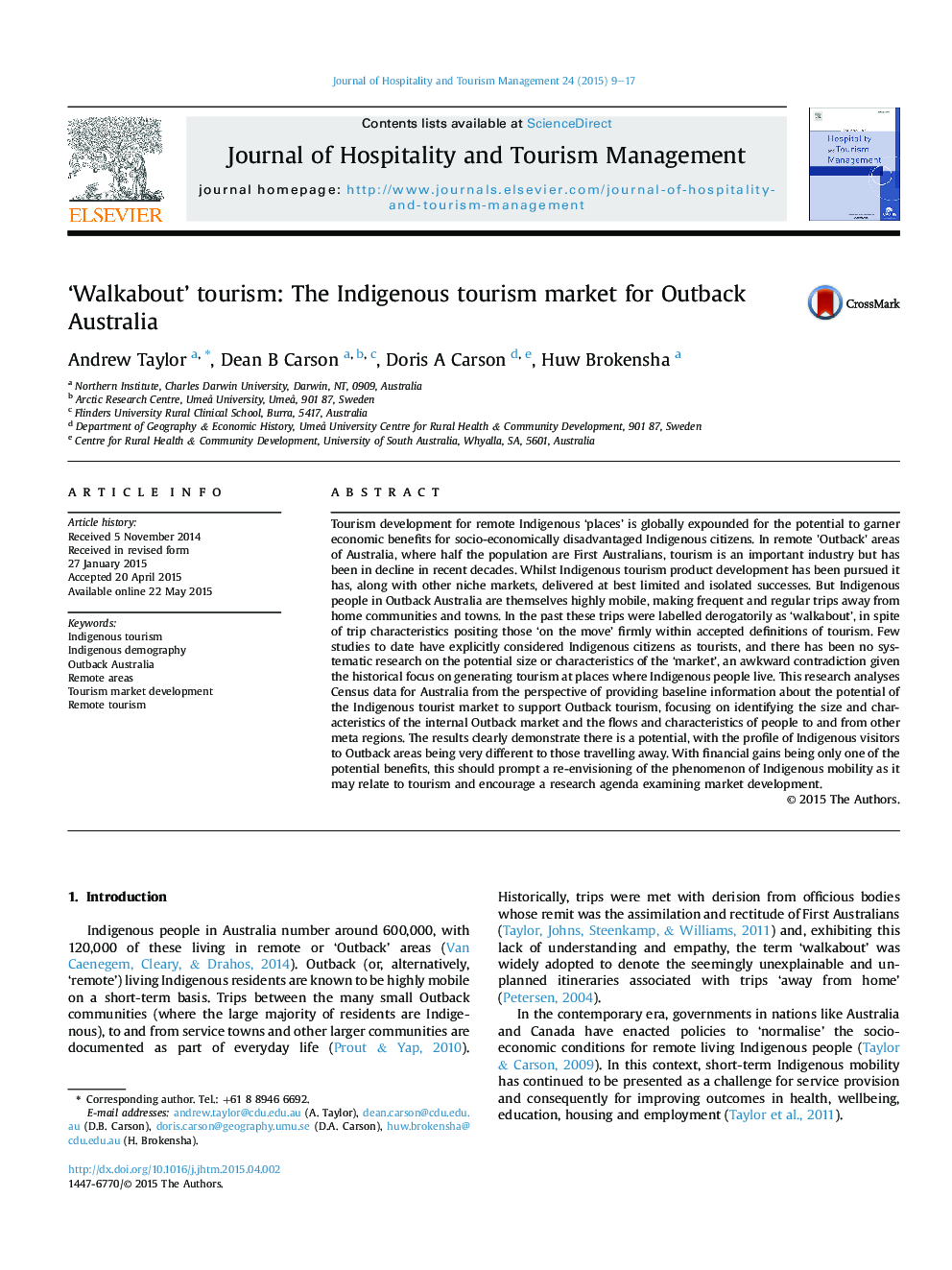| Article ID | Journal | Published Year | Pages | File Type |
|---|---|---|---|---|
| 1011461 | Journal of Hospitality and Tourism Management | 2015 | 9 Pages |
Tourism development for remote Indigenous ‘places’ is globally expounded for the potential to garner economic benefits for socio-economically disadvantaged Indigenous citizens. In remote 'Outback' areas of Australia, where half the population are First Australians, tourism is an important industry but has been in decline in recent decades. Whilst Indigenous tourism product development has been pursued it has, along with other niche markets, delivered at best limited and isolated successes. But Indigenous people in Outback Australia are themselves highly mobile, making frequent and regular trips away from home communities and towns. In the past these trips were labelled derogatorily as ‘walkabout’, in spite of trip characteristics positing those ‘on the move’ firmly within accepted definitions of tourism. Few studies to date have explicitly considered Indigenous citizens as tourists, and there has been no systematic research on the potential size or characteristics of the ‘market’, an awkward contradiction given the historical focus on generating tourism at places where Indigenous people live. This research analyses Census data for Australia from the perspective of providing baseline information about the potential of the Indigenous tourist market to support Outback tourism, focusing on identifying the size and characteristics of the internal Outback market and the flows and characteristics of people to and from other meta regions. The results clearly demonstrate there is a potential, with the profile of Indigenous visitors to Outback areas being very different to those travelling away. With financial gains being only one of the potential benefits, this should prompt a re-envisioning of the phenomenon of Indigenous mobility as it may relate to tourism and encourage a research agenda examining market development.
